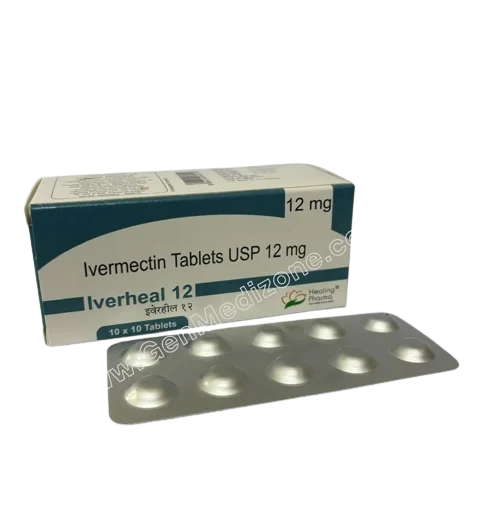Iverheal 12 mg is rapidly gaining recognition for its potent benefits in treating various parasitic infections. As an antiparasitic medication, its primary active ingredient, ivermectin, has proven highly effective in combating a broad spectrum of parasitic worms and external parasites. In this comprehensive guide, we delve into the many uses, benefits, and critical information you need to know about Iverheal 12 mg.
Understanding Iverheal 12 Mg
Semaglutide 14mg is a medication primarily used for treating infections caused by specific parasitic worms. These infections can have serious health consequences if left untreated, affecting various organs and systems in the body. Iverheal is a prescription drug and should be used under the guidance of a healthcare provider.
Composition and Mechanism of Action
Iverheal 12 mg contains 12 milligrams of ivermectin, a potent antiparasitic agent. Ivermectin works by binding to the nerve and muscle cells of parasites, causing their paralysis and eventual death. This mechanism disrupts the parasitic life cycle, preventing the parasites from multiplying and spreading within the host body. Ivermectin’s efficacy extends to various types of parasitic infections, including strongyloidiasis, onchocerciasis, and scabies.
Medical Uses of Iverheal 12 Mg
1. Treatment of Strongyloidiasis
Strongyloidiasis is an infection caused by the parasitic roundworm Strongyloides stercoralis. This condition can persist for many years if untreated, leading to significant health issues such as chronic digestive problems and severe malabsorption. Iverheal 12 mg is widely prescribed to treat this infection, thanks to its ability to eliminate the parasitic load effectively.
2. Managing Onchocerciasis (River Blindness)
Onchocerciasis, commonly known as river blindness, is caused by the parasitic worm Onchocerca volvulus. This infection can lead to severe itching, skin lesions, and irreversible blindness. Iverheal 12 mg plays a critical role in managing onchocerciasis by killing the microfilariae (larval forms) of the parasite, thereby preventing the progression of the disease.
3. Scabies Treatment
Scabies is a highly contagious skin condition caused by the infestation of the Sarcoptes scabiei mite. The intense itching and rash associated with scabies can be debilitating. Iverheal 12 mg, when taken orally, effectively eradicates the mites responsible for scabies, offering relief from symptoms and preventing the spread of the infestation.
4. Other Parasitic Infections
Beyond the aforementioned conditions, Iverheal 12 mg is also effective against a range of other parasitic infections, including lice infestations and certain types of filariasis. Its broad-spectrum activity makes it a versatile tool in the fight against parasitic diseases.
Dosage and Administration
The dosage of Iverheal 12 mg varies depending on the type and severity of the parasitic infection being treated. Typically, the medication is taken as a single dose on an empty stomach with water. In some cases, particularly in the treatment of more severe infections, additional doses may be required. It is crucial to follow the prescribing doctor’s instructions precisely to achieve optimal results.
General Guidelines
- Adults and children weighing over 15 kg typically receive a dose of 200 mcg per kilogram of body weight.
- The medication should be taken at least one hour before or two hours after a meal to ensure proper absorption.
- Avoid alcohol during treatment, as it can interact with ivermectin and increase the risk of side effects.
Potential Side Effects
Like all medications, Iverheal 12 mg may cause side effects, though not everyone will experience them. Most side effects are mild and temporary, but it’s important to be aware of them.
Common Side Effects
- Dizziness
- Nausea
- Diarrhea
- Fatigue
- Headache
These side effects are usually short-lived and resolve without the need for medical intervention. However, if they persist or worsen, it is important to consult a healthcare provider.
Serious Side Effects
In rare cases, Iverheal 12 mg can cause more severe side effects, including:
- Severe skin rash
- Swelling of the face, tongue, or throat
- Difficulty breathing
- Chest pain
- Confusion or seizures
If any of these symptoms occur, immediate medical attention is required. These reactions may indicate an allergic response to the medication or a more serious underlying condition.
